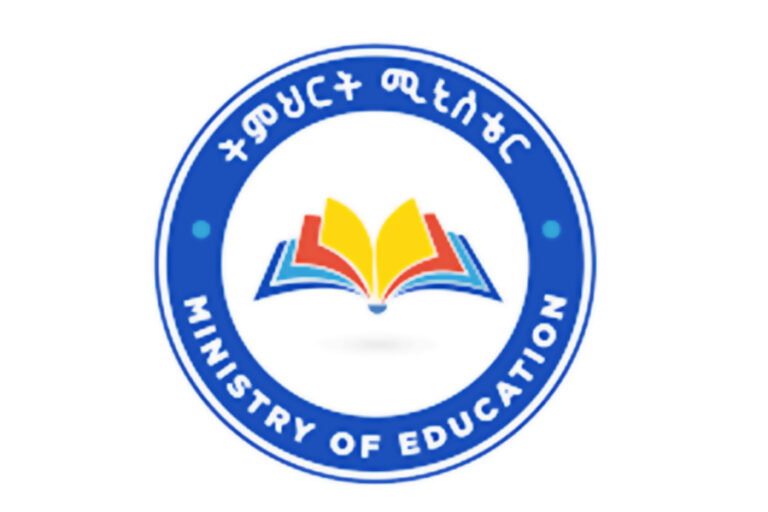On the 27th of May, in the presence of the Ministry of Health representatives’, the Ethiopian Kidney Care launched its formation.
“Our non-profit organization is working on the kidney health and kidney disease with a focus on three core goals, which is to; create awareness about kidney diseases and kidney health, research and kidney patient support. The objective of this launching event is to introduce our organization and what it has been doing since its inception and its future projects ahead,” the founder and chair-person of the Ethiopian Kidney Care explained.
The organization is set on a bedrock that envisions to better the lives of people through prevention and proper management of kidney diseases in Ethiopia and further seeks to promote kidney health through awareness creation, disease prevention, education research, support groups and community empowerment to decrease the burden of kidney disease in Ethiopia.
A panel discussion comprised of health professional and patients is one of the components of the program that focuses on kidney disease and its burden on our society.
The Ethiopian Kidney Care launch
The state of 12th grade examinations
Ministry of Education plans to give 12th grade university entrance exam for 2020/21 students before the national election date, that is, under a month. According to the ministry, similar to the previous year’s candidate this year’s batch will also take the exam with a print route as opposed to digital.
Last Thursday the national board of election had announced a new Voting day from the pre-set date of June 5 by delaying the democratic event by two weeks to June 21. According to Huria Ali, state ministry of education, told Capital that the ministry is preparing to give the national exam before the national Election Day which will be described in the coming week.
As she explains even though the ministry had planned to digitalize the examination, the plan had failed again this year and will be given in print form. Last year’s 2019/20 national exam which was delayed due to the global pandemic was also said to be given digitally but ended up not following through with the same.
The Ministry of Education can be recalled to giving statements that for the first time 12-grade university entrance examinations of 2019/20 would be given online and students to that effect would be given 450, 000 tablet in total. In addition to alleviating cheating, online exams were also seen as a tool to save both time and money and would be the future of administering quality education when the Ministry introduces it. However, as a result of delay in importing the equipment, the ministry had changed its plan, and this year the chance of having a digital examination is slim.
According to the Ministry of Education (MoE), more than 358,000 students took the national university entrance exam following a Covid-19 induced delay to pursue higher education in the upcoming academic year 2020/21 (2013 E.C.). In Addis Ababa alone, more than 23,560 had taken the exam. The Ministry of Science and Higher education (MoSHE) announced that 147,640 students will be expected to join 47 government universities having met the academic threshold.
Briefing reporters, a top official of the National Educational Assessment and Examinations Agency (NEAEA) said improvements both in terms of results and number of examinees has been observed this year. Half of the students who sat for the 2020 grade 12 national exam have scored 350 and more, revealed Ethiopia’s Examinations Agency.
Up to 55.7% of students who sat for national exam have scored 350 and above, besides, at least 700 Students have scored 600 and beyond. On Friday May 21, The Minister of Science and Higher Education, Dr. Samuel Urkato, announced that students who have completed their higher education entrance exams will be admitted to their assigned universities by June 8, 2021.
Out of the more than 147,000 students who passed this year’s examination, 206 students with high marks have been assigned to the desired field of study, he said.
GPE promises digital transformation following Telecom award
The consortium of conglomerate, Global Partnership for Ethiopia (GPE) welcomes the license award to operate telecom services in Ethiopia.
Two days after the license award announcement was made by the Council of Ministers, GPE, that includes; Safaricom, Vodacom Group, Vodafone Group, Sumitomo Corporation, and CDC Group of UK’s development finance institution and impact investor announces that a new operating company in Ethiopia aims to start providing telecommunications services from the first quarter of 2022.
Vodafone Group’s CEO, Nick Read, said this is a significant development for Ethiopia, which is one of the last very large markets in the world to introduce telecom competition.
On the press release sent to Capital it stated that the Global Partnership for Ethiopia was created to bring about transformational economic and social impact in the country.
“The provision of accessible, affordable and high quality mobile and internet connectivity by the Partnership will enable greater social inclusion as millions more Ethiopians access quality telecom services,” it says on its statement, and added that increased connectivity in Ethiopia will also boost the economy, impacting over 1 million jobs with digital training and skills, and bringing about productivity improvements for countless micro-entrepreneurs and small and medium sized enterprises.
“In past years, we have seen the power of digital transformation and its impact on our customers. We believe by working with all stakeholders in Ethiopia, we can deliver a similar transformation while achieving a sustainable return to our shareholders,” Peter Ndegwa, CEO of Safaricom, said.
The Vodacom Group CEO, Shameel Joosub, on his part said the consortium partners have a great track record for delivering transformative technology services, particularly when it comes to health, education and agriculture, built on quality telecom networks.
“We want to make a real difference to the lives of Ethiopians through promoting widespread digital inclusion as part of Vodacom’s pledge to connect the next 100 million Africans by 2025,” he said.
Toshikazu Nambu, Executive Vice President & Chief Digital Officer, of the Japan based Sumitomo Corporation, said that his corporation plans to bring our ample experience in Asia and Japan and know-how for cutting edge digital transformation to a really emerging country, Ethiopia.
The consortium secured the license by USD 850 million and including the license fee it promised to invest USD 8.5 billion in the telecom industry in the coming decade.
Senior executives of the global companies are expected to visit the country in the coming couple of weeks.
The transition to Sinqe Bank
With a subscribed capital of 15 billion birr and a paid up capital of 7 billion birr, Oromia credit and saving share company has relicensed to provide banking service in consort with its long existing microfinance wing based on the proclamation no 626/2009 and national bank of Ethiopia directive no SBB/74/2020. The company has also been renamed to Sinqe bank called after the cultural institution of Oromo women.
To have its own building, the new incoming bank has awarded Samcon Construction Plc for the construction of its building located at Bole around Adamat Hotel which is expected to be completed in two years’ time.
Following the directive of the National Bank of Ethiopia (NBE) issued last year, allowing microfinance institutions to evolve into commercial banks with a two-year transition period executives of the microfinance made the transformation from microfinance to banking service with not discounting the microfinance operation
“The primary goal of the relicensing is to realize inclusive services to all withstanding the microfinance service targeting job creation and financing to the poor and incorporate larger financial seekers as well,” said Zewde Teffera, chairperson of the bank on shareholders annual meeting held on Monday May 24 2021 at Sheraton Addis hotel. “Purpose of the establishment is inaccessibility of contemporary financial service to the rural people in the region that contribute for their impoverishment,” the chairperson added.
Following the issuance of proclamation no.40/1996 proclamation that determines the licensing and supervision of micro finance institutions, Oromia credit and saving Share Company was established in August 1997 to give micro finance service obtaining operational from the National Bank of Ethiopia and trading license from the federal ministry of trade and industry. The five founders and shareholders of the company were Oromia National Regional State, Oromo Self-Help Organization, Dinsho Trading PLC, Oromia Development Association and the late president of Oromia regional state, Alemayehu Atomsa. The company started its operation with 5.2 million which in the last 23 years has grown to 7 billion while its asset has reached birr 15.4 billion in this fiscal year, the paid-up capital of Oromia Credit stood at 679 million Birr as of October 2020.
Currently, the company has more than 400 full-fledged branches, as Zewde tells Capital. When it becomes operational, the bank will start giving its services with about 60-70 branches. “The new bank is expected to enter in the financial market soon as the national bank ratifies its establishment. The bank will continue to strength its microfinance services to low income people, farmers and unemployed youths combined with its full banking service,” added Zewde.
“The bank will certainly contribute to economic growth by mobilizing potential financial resources in the region as well as in the region by providing state of art financial services equipped with contemporary financial technologies,” said Shimels Abdisa president of Oromia Regional State, at the shareholders meeting.
Oromia Credit will be the second microfinance institution to initiate the transition into a bank, following the Amhara Credit & Saving Institution (ACSI).






